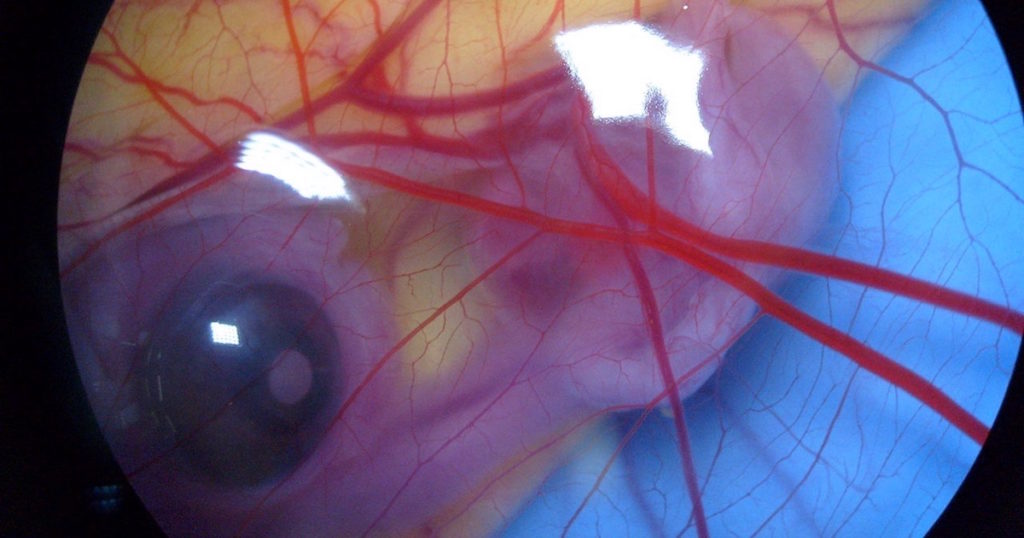 Intelligent Design
Intelligent Design
 Life Sciences
Life Sciences
Life Without Purpose — The Fundamental Flaw

In my most recent post on the science of purpose, I described how the phenomenon of emergence illustrates the irreducible complexity of life. I asked whether the undeniably purposeful behavior of biomolecules was foundational, i.e., intentional, versus accidental, i.e., random. I was building upon previous posts, where I pointed out that scientific atheism is based on the notion that structure randomly generates function, thereby justifying the belief in “life-as-accident.” My conclusion was that function cannot exist without a whole self, so that structure alone can never generate purpose on its own.
Tying It Together
Now it is time to tie all of these concepts together. To be sure, the greatest mystery in life is its origin. Despite billions of dollars spent on research at countless labs, no one has been able to come even remotely close to describing how the first whole organism emerged from the essential atoms of CHNOPS, basting in the so-called primordial soup. Why is this?
The answer unlocks a whole host of other mysteries that have eluded materialist science. Simply put, if you keep looking in the wrong place for something, you will never find it. Br’er Fox would never find Br’er Rabbit until he finally looked in the briar patch.
An Upheaval in the Paradigm
There have been several times in the history of science when an entire upheaval in the reigning paradigm was necessary to correct the course of human understanding. We have seen this in the cases of Galileo, Copernicus, Newton, Einstein, and others. Realizing at long last that we can never understand life by the reductionist approach, we must now be ready for another giant leap, and create an upheaval of our own.
The fundamental flaw in the conventional approach to understanding life is that we think we can fully understand the whole by looking at the individual parts. This is how engineers build great machines. But the basic idea illustrated by emergence is that, for life, the whole is greater than the sum of the parts. That is, you can never understand the whole just by analyzing the parts. The even greater fundamental fact is that, in order to realize the upheaval we seek, we must admit to a radical, albeit ancient, concept: when it comes to life, there really is no such thing as individual parts. There is only the whole.
“Parts” as Fictions
This is something I learned about fifty years ago studying from the Zen master Alan Watts. As he concisely explained in The Book: On the Taboo Against Knowing Who You Are (1966),
Parts are fictions of language, of the calculus of looking at the world through a net which seems to chop it up into bits. Parts exist only for purposes of figuring and describing, and as we figure out the world we become confused if we do not remember this all the time. [Emphasis in the original.]
And confused we will remain until we understand this basic truth. For machines, as Etienne Gilson wrote in From Aristotle to Darwin and Back Again (1971), “the parts precondition the whole.” But quite the opposite is true of life, where “the whole shapes the parts, and in a sense, precedes them.” Just think of embryogenesis. The whole organism starts from a single fertilized egg, and all of the entities that will eventually compose the whole branch out simultaneously, initially unformed. There is no one thing making another. There is simply a true evolution of the whole, emerging from the egg.
In fact, before Darwin, the word “evolution” was used only in reference to embryogenesis.
Function in the Absence of a Whole
This is why it makes no sense to say that structure can lead to function absent a whole. And it is why you cannot make the first whole life form from its parts without understanding the intentionality that exists within all organisms, such that they function as a whole, and not just as a collection of moving parts. This means the properties of emergence can only be understood a posteriori. An intelligence beyond the human mind is necessary to comprehend these things a priori.
Thus, no matter how many times you mix CHNOPS in a beaker, you will never get life. That is because you are missing the intentionality that distinguishes living from nonliving. The intentionality of a machine comes from the mind of the engineer. The intentionality of life comes from the mind of the creator.
Aristotle described this truth 2,400 years ago. He called it telos, final causation: the end to which all things are ordered. This is a truth so timeless that it was resurrected and codified 1,600 years later, by the greatest theologian/philosopher in the history of Western civilization, St. Thomas Aquinas.
